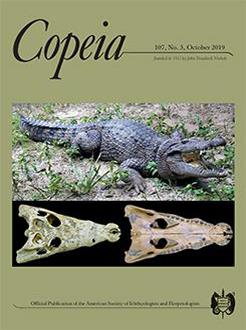Long-term studies on wildlife populations are necessary to track population abundance and shifts in demography over time, yet such studies are difficult to plan, fund, and conduct and are therefore rarely undertaken. Such studies are especially important for long-lived species that can persist for long periods of time with little to no reproductive output or recruitment. We conducted two population studies spanning a 30-year time frame on the globally endangered Spotted Turtle (Clemmys guttata) on protected land in the center of their range. Spotted Turtles are endangered in Canada, listed as globally endangered on the IUCN red list, and declining throughout their range. However, there has only been one previous long-term study tracking their long-term population trajectory. Here, we use mark–recapture data collected over a 30-year time frame and report that the estimated population size of Spotted Turtles has decreased by 49% at our study site despite the habitat residing with a protected area. This decline was concurrent with a significant increase in the proportion of larger individuals within the population, indicating a lack of recruitment into the sub-adult stage class. These results highlight the value of long-term studies in monitoring population changes of long-lived species, the importance of active management within protected areas, and the ability of long-lived species to persist for long periods of time despite having little recruitment and a declining population trajectory.
How to translate text using browser tools
13 September 2019
Long-Term Turtle Declines: Protected Is a Verb, Not an Outcome
Hunter J. Howell,
Richard H. Legere,
David S. Holland,
Richard A. Seigel





